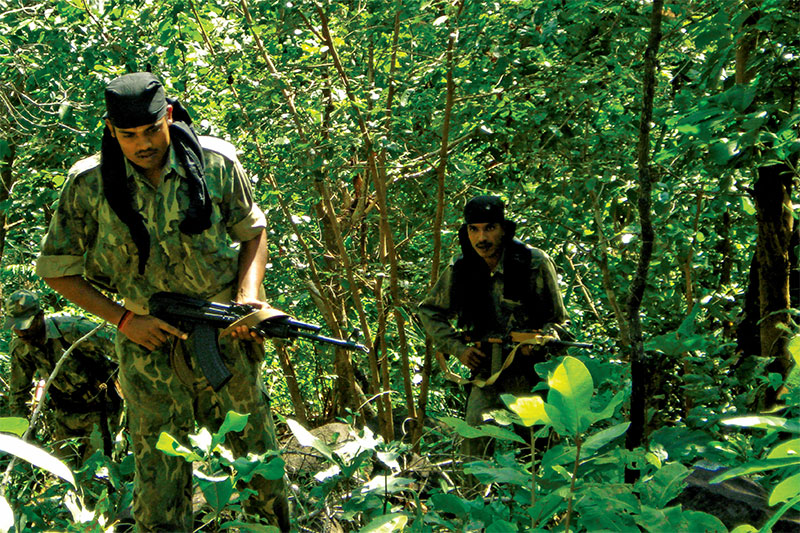The manifold challenges of internal security, and how the government plans to tackle it
Mihir Paul, Rohan Ramesh and Yunus Dar
The events on the island nation, which is India’s neighbour just 53 km across the Palk Strait, should ring alarm bells in Delhi’s corridors of power. That the horrific chain of happenings in Sri Lanka has been traced to Islamic State (IS) subordinate is indicative of the penetration of the transnational terrorist organisation, which seems to be relocating to South Asia even as it is virtually being uprooted in Syria and Iraq. IS footprints have been found in Afghanistan, Pakistan and Bangladesh as well as Kashmir, although the terror outfit has not made much progress in India, except for enlisting young men and even women for its operations in the Levant.

For India, which has for two decades faced a grave threat from Taliban relocating to Kashmir from Afghanistan, the threat is dire.
The horrific Easter bombings on April 21 that killed close to 253 people and injured more than 500 in Sri Lanka shocked the world with the sheer scale and barbarity of the attack. While the IS claimed responsibility for the bombing, the Sri Lankan government blamed the local group, National Thowheed Jama’ath (NTJ), for the attacks. Compounding the failure of the Sri Lankan security agencies in anticipating the attack was a botched raid on terrorists hunkering down in a house near Kalmunai town in the Eastern province of the island nation that left 16 dead, including six children, three women and two suspected terrorists. The police seized a large cache of suicide kits, explosives, detonators, 10,000 ball bearings and IS uniforms and flags.
There is a global consensus that the tragedy happened because of a colossal intelligence failure on the part of the Sri Lankan authorities, which the government has now acknowledged. The Indian intelligence network claims to have raised at least three alerts, including on the day of the attack, the first one was sent at least 17 days back, sources claimed. India’s National Investigation Agency (NIA) stumbled upon a video of Maulvi Zahran Bin Hashim, the leader of NTJ, while it was probing the IS Coimbatore module. The inputs mentioned possible targets and locations of the terrorists’ hideouts in great detail and were passed on to the Lankan authorities on time.
However, considering the bitter differences between the president and the prime minister and the lack of coordination between different departments, no action could be taken on the valuable intelligence reports. The island nation emerged from a severe constitutional crisis last year when the country’s President Maithripala Sirisena tried to remove Prime Minister Ranil Wickremesinghe and replace him with former leader Mahinda Rajapaksa. The failed coup gave rise to an unstable and weak government, widening the chasm between the top leaders, and eroded the trust amongst them.
Notwithstanding the failure by the Lankan authorities to thwart the barbaric attack, the developments later represented a significant success for the Indian intelligence agencies. It’s now becoming increasingly clear that the NIA, including India’s spy agency, Research and Analysis Wing (R&AW), had been actively monitoring the IS activities in the South, which led to the tip-off. The agencies analysed in detail the video evidence of Hashim, in which he had exhorted Muslim youth from Sri Lanka, Tamil Nadu and Kerala to establish an Islamic rule in the region. The evidence was further investigated by R&AW, who subsequently alerted Sri Lanka.
Also Read:
BJP’s 2014 Election Manifesto
The BJP’s 2014 manifesto reiterated the cornerstone of India’s policy on Jammu and Kashmir – that the state would remain an integral part of the Union of India.
Also Read:
BJP’s Election Manifesto For 2019
Jammu and Kashmir - Article 370
In the last five years, BJP claims to have made all necessary efforts to ensure peace in Jammu and Kashmir through decisive actions and a firm policy
Also Read:
Indian National Congress’ Election Manifesto for 2019
Jammu and Kashmir
The Congress claims it has long held the view that dialogue is the only way to understand the aspirations of the people of the three regions of Jammu and Kashmir and find an honourable solution to their issues and promises.
You must be logged in to view this content.

